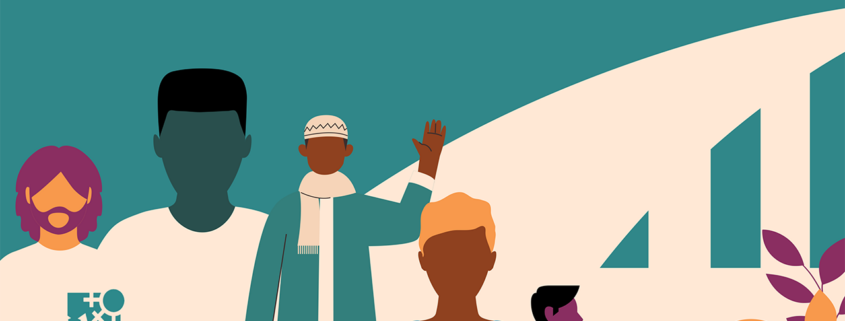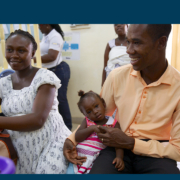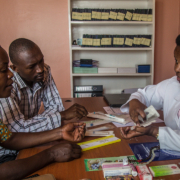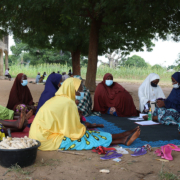Beyond Loneliness: Cultivating Friendships Among Boys and Men for Better Health
Friendships are good for your health. Really. Studies have shown that people with strong social connections, particularly friendships, tend to be healthier and happier. They also tend to live longer.[1]
This should be good news, except that the U.S. Surgeon General Vivek Murthy recently released an advisory to alert the public about an epidemic of loneliness sweeping across the country. According to the advisory, loneliness is associated with a greater risk of heart disease, dementia, stroke, depression, anxiety, and even premature death. The health impact of loneliness is similar to that caused by smoking up to 15 cigarettes a day. In other words, the lack of friendships and meaningful social connections is a legitimate public health concern that health professionals should take note of.
Gender Disparities in Friendship and Social Connections
While the health benefits of friendship apply to people of all genders, research suggests boys and men face unique challenges in building and maintaining close friendships. Despite entering teenage years with the desire and ability to form and maintain close friendships, toxic masculinity discourages boys from such behaviors. In the name of independence—a necessary trait of men according to social expectations—men disconnect with their peers and family, the very people who can support their well-being.[2]
Fortunately, anyone can learn the skills they need to avoid loneliness. A brief co-authored by Breakthrough ACTION on behalf of the Male Engagement Task Force of the Interagency Gender Working Group explores this topic. Entitled Building Bridges: Promising Strategies for Improving the Health of Boys and Men by Promoting Social Connection and Support, this brief describes examples of programs that are successfully addressing the need for social connections and support. It also identifies three promising strategies programs can adapt to help boys and men form meaningful friendships as they go through life. The ability of boys and men to sustain strong friendships will go on to benefit both their health and that of the girls and women in their lives.
Strategy 1: Cultivate Empathy and Compassion as a Lifelong Practice
Strong friendships are rooted in empathy and compassion.[3] Empathy and compassion, like most critical life skills, are decidedly learnable. The most effective approaches to teaching empathy encourage learners to practice self-reflection, take on another person’s perspective, and regulate their emotions.
Roots of Empathy, a school-based program, allows children to observe one of the most powerful human relationships—the relationship between a newborn and her parents. Through fun activities, children practice perspective-taking and communicating their emotions. This intervention is well tested in numerous settings and teacher assessments have reported less aggressive and more prosocial behaviors among students. Roots of Empathy provides a model of activities that programs seeking to promote social connection among boys and men can likewise employ.
Strategy 2: Promote and reinforce communication and interpersonal skills
Good communication and interpersonal skills are crucial for supportive friendships. This includes active listening, which shows someone you are giving them your undivided attention, are empathetic to them, and are genuinely interested in what they have to say.
The Listening Project, which addresses the growing alienation, social isolation, and fragmentation that characterize modern society, exemplifies this approach by teaching interviewing techniques that foster interpersonal curiosity. Through the act of questioning, active listening, and sharing, participants (usually adolescent or young adult students) hone their interpersonal and communication skills, laying the groundwork for the developing enduring friendships. Similar approaches can be applied to programs that seek to enhance the ability of boys and men to be curious and active listeners.
Strategy 3: Facilitate Access to Opportunities for Social Connection
Forming and sustaining close relationships takes time and space, whether virtual or in-person. As most people age, their social network shrinks, which significantly impacts physical and mental health. This is particularly relevant for men. People need multiple opportunities to learn empathy, practice active listening, and cultivate emotional intimacy. Access to a safe space where people can practice these skills regularly is therefore critical.
Men’s Sheds does an exceptional job of providing men with a safe space to interact with their male peers. Because men tend to feel more comfortable with “shoulder-to-shoulder” conversations,[4] Men’s Sheds create opportunities for men to gather and participate in activities based on shared interests, such as woodwork or building model railways. Time spent with men in their communities with shared interests allows men to develop a sense of self-worth and belonging. These spaces also provide an entryway for men to access health-related information and services. Programs aiming to improve the health and well-being of boys and men can draw inspiration from this approach to create a safe space for contextually appropriate activities.
Building an Ecosystem that Nurtures Friendships
Healthy, life-sustaining ecosystems in nature are supported by a diverse collection of animals, plants, and microorganisms. An ecosystem that allows boys and men to form health-enhancing friendships is no different. This International Friendship Day, consider how you can be part of this ecosystem. If you are a health program designer, consider how you can adapt these strategies for your program. If you are a policymaker or donor, reflect on how your policies and investments can support such work. And if you are a researcher, consider how you can expand evidence in this area. Regardless of your role, you can all help raise awareness about the transformative role friendships play, starting with sharing this story.
Written by: Meei Child, Communications Officer, Breakthrough ACTION, and Dominick Shattuck, Research, Monitoring, Evaluation, and Learning Director, Breakthrough ACTION
[1] Holt-Luns tad, J., Smith, T. B., & Layton, J. B. (2010). Social relationships and mortality risk: A meta-analytic review. PLoS Med, 7(7): e1000316. https://doi.org/10.1371/journal.pmed.1000316/
[2] Way, Niobe. Deep secrets: Boys’ friendships and the crisis of connection. Harvard University Press, 2013. https://doi.org/10.4159/harvard.9780674061361
[3] Portt, E., Person, S., Person, B. et al. (2020). Empathy and positive aspects of adolescent peer relationships: A scoping review. Journal of Child Family Studies, 29, 2416–2433. https://doi.org/10.1007/s10826-020-01753-x
[4] Swain, S. (1989). Covert intimacy: Closeness in men’s friendships. In B. Risman & P. Schwartz (Eds.), Gender in intimate relationships (71–86). Wadsworth.


 Sarah Hoibak/VectorWorks/Photoshare
Sarah Hoibak/VectorWorks/Photoshare Rebekah Munnikhuysen/US Peace Corps/Photoshare
Rebekah Munnikhuysen/US Peace Corps/Photoshare Rachel Chilton/USAID/Flickr
Rachel Chilton/USAID/Flickr Yagazie Emezi/Getty Images/Images of Empowerment
Yagazie Emezi/Getty Images/Images of Empowerment USAID/Flickr
USAID/Flickr Breakthrough ACTION-Nigeria
Breakthrough ACTION-Nigeria